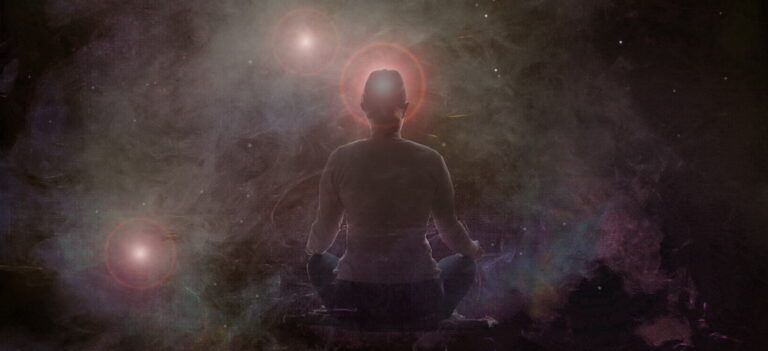Abstract: This article explores the multifaceted nature of time, delving into its scientific, philosophical, and perceptual dimensions. We begin with the human experience of time as a linear progression and its measurement through durations and spacetime points. Einstein’s theory of relativity challenges this perception, revealing time’s relativity influenced by gravity and motion. We examine the concept of chronoception, highlighting the variability of human time perception. The discussion extends to the quantum realm, where traditional notions of time break down, and particles exhibit timeless behavior. Philosophically, we consider time as both a fundamental structure of the universe and a potential mental construct. Ultimately, we conclude that while time’s passing is real, it defies the simplistic idea of a universal metronome, embodying a complex and subjective experience shaped by our perception and the universe’s quirks.
Unveiling Time: The Mind’s Journey Through Space and Motion.
Time! The ultimate party crasher. It’s always ticking away, reminding us of our mortality, and making us wonder if it’s even real. So, does time exist? Well, buckle up, because the answer is both yes and no.
The Perception of Time: Duration, Spacetime Points, etc.
First off, let’s talk about our human experience. We perceive time as a linear progression, a straight line from past to present to future. We use time to measure durations, sequence events, and coordinate activities. These spacetime points are familiar to us: meeting someone at a specific time and place is a common occurrence. But what if I told you that’s just a clever illusion? Einstein’s theory of relativity reveals that time is relative, affected by gravity and motion. Time can slow down or speed up depending on your frame of reference!
The Passing of Time: No Universal Metronome
Yes, time exists, but it does not exist in the way we think about it. We generally think there is a ticking clock someplace. We “believe” in a sort of universal metronome, but that metronome does not exist. Einstein’s theory of relativity added a complex layer to our understanding, challenging our everyday experience of time as a constant flow.

We now know that my time in California at sea level is subtly different from my friend at the top of the mountain in Reno, Nevada. While the passing of time is only so very subtly different for a person at sea level than on a mountain, we now know it is different. In my “30 Philosophers” book, I used the extreme idea of two electric watches, one on a table and one on the floor to describe that we have confirmed that time passes slightly slower for the watch on the floor; it ages slower. So, time ticks dramatically differently for someone on Earth versus someone near a black hole.
Chronoception: Human Perception of Time
Chronoception refers to our sense of time—the way we perceive its passage. Humans generally experience time as a constant flow, but this perception can be influenced by various factors. For instance, time seems to fly when we are engaged in enjoyable activities and drag when we are bored. Neurological and psychological studies suggest that our brain’s internal clock can be influenced by emotions, attention, and even temperature. This subjective experience shows how elastic and variable our perception of time can be.
The anchor for chapter 15 of my “30 Philosophers” book is Augustine, born in 354. Saint Augustine, a prominent philosopher and theologian, contributed significantly to our understanding of time’s subjective nature. Augustine proposed that time is a perception of the mind, consisting of three parts: remembering the past, experiencing the present, and anticipating the future. In the book, I put it this way:
Augustine was one of the first to describe time as a subjective experience. Today we know it is influenced by a variety of factors, including our attention, memory, and emotions, as well as things like light and noise.
According to Augustine, the past exists in our memory, the present is experienced through our senses, and the future is anticipated by our imagination. This three-part perception highlights the intricate ways our minds construct the flow of time, underscoring the deeply personal and mental nature of our temporal experience.

Quantum Time: Throw out the Rules!
In the quantum realm, particles seem to dance to their own rhythm, sometimes appearing to ignore time altogether. Quantum mechanics introduces a layer of complexity where traditional concepts of time often break down. Particles can exist in multiple states simultaneously, and their behavior can appear to be both random and timeless. Some interpretations of quantum mechanics even suggest that time might be an emergent property from a more fundamental level of reality, making it a secondary feature rather than a primary one.
Philosophical Time: Ideas on the Nature of Time
When thinking about time philosophically, you can view it as an abstract idea that allows us to sequence events, understand change, and measure durations.

Philosophers have long debated the nature of time—whether it is a real, physical entity or a mental construct. Augustine pondered whether the past and future truly exist or if only the present is real. Kant argued that time is a necessary condition for human experience but doesn’t exist independently of the human mind. Ultimately, whether time “exists” can depend on how we define existence and our perspective. In one sense, time is a fundamental part of the universe’s structure, shaping our reality, essence, and existence. In another sense, it may be an emergent property of our minds coping with a complex reality.
I have a game I play called Time Trail, which I first documented in my 30 Philosophers book. It uses spacetime and our sense of chronoception to explore our perceptions of reality and prelinguistic thoughts. This game involves marking specific points in your life journey, allowing you to reflect on who you are at each point in time. By consciously noting these moments, you gain a deeper understanding of your own evolution and the fluid nature of your identity. This practice highlights the concept of living in the present while appreciating the continuous thread of your past, present, and future selves.

Time Trail goes beyond mere reflection; it encourages mindfulness and self-awareness. By engaging with your inner voice and marking significant moments, you become more attuned to the changes within yourself and your environment. This game also extends to shared experiences with others, creating intertwined threads of time that connect your journey with those of your loved ones. Through Time Trail, you not only observe the passage of time but actively participate in it, fostering a holistic understanding of your place within the vast continuum of spacetime.

Conclusion
So, does the passing of time exist? Yes, time is the relative position and movement of objects, but it is not a metronome. And, does it only move forward? Yes, the relative position and movement of objects move in what we call forward time. Finally, does the passing of time exist? Well, maybe. That’s like asking if a rainbow exists. It’s a beautiful, subjective experience, a product of our perception and the universe’s quirks.
— map / TST —
Read the full story…
To fully understand the story of human thought, delve deeper into the nature of time. My latest book, my 15th, intricately explores time as an essential part of our human journey. From chronoception and philosophical musings to Einstein’s groundbreaking theories, this comprehensive narrative spans from 2600 BCE to 1980, enriched with contemporary insights. Read the full story and uncover the evolution of human thought in its entirety.
BUY THE BOOK! Immerse yourself in knowledge, not snippets.
- Discover how 30 influential philosophers shaped our understanding of the world.
- Explore the concepts that continue to influence science, art, and culture today.
- Get your copy now and start thinking like the greatest minds in history!

















